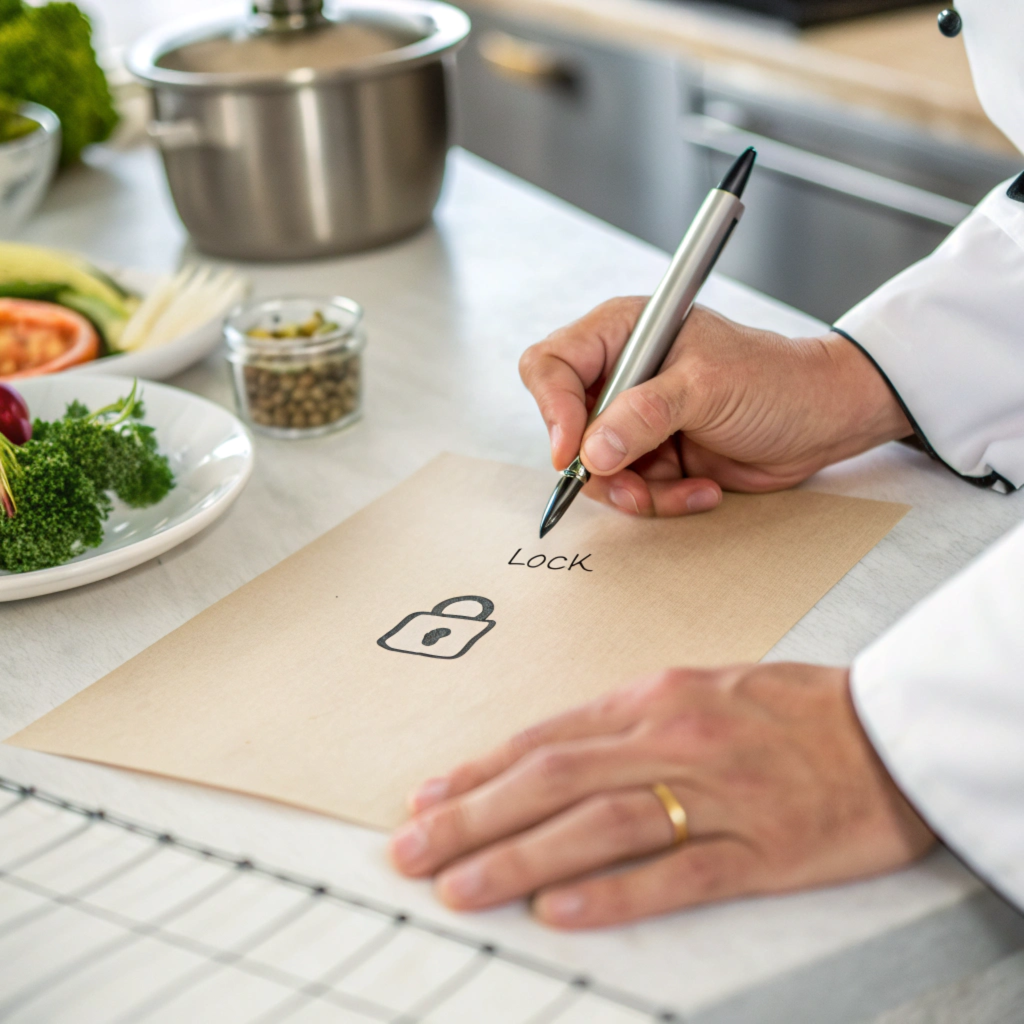In the competitive food industry, secret recipes play a crucial role in the success of businesses. From well-known fast food chains to local specialty shops, these formulas can be the key to a brand’s identity. But can a secret recipe be considered intellectual property? The answer lies in understanding how the law protects confidential business information. In this article, we will explore the ways recipes can be safeguarded through trade secrets and what businesses can do to protect their most valuable culinary formulas.
What Is Intellectual Property?
Intellectual property (IP) encompasses the legal rights that protect creations of the mind, including inventions, designs, brand names, and more. IP laws allow creators to benefit from their innovations by providing exclusive rights. To learn more about the various types of IP, visit What is intellectual property? – WIPO.
- Patents – Protect technical inventions and offer the inventor exclusive rights.
- Copyrights – Safeguard creative works, such as books, music, and films.
- Trademarks – Protect logos, brand names, and other distinguishing symbols in commerce.
- Trade secrets – Safeguard confidential information that provides a business with a competitive advantage, such as recipes, manufacturing processes, and formulas.
For more information on intellectual property, refer to this article on IP Basics.
Can a Secret Recipe Be Considered Intellectual Property?
The question arises: Can a secret recipe be considered a form of intellectual property? While traditional forms of IP such as patents or copyrights don’t typically cover recipes, they can fall under the protection of trade secrets.
A trade secret is any information that provides a business with an advantage over its competitors and is kept confidential. If a recipe is not disclosed publicly, it can be protected under the legal framework of trade secrets. Companies, such as Coca-Cola and KFC, have kept their recipes secret for years, benefiting from the competitive edge these formulas provide.
To learn more about trade secrets and how they are protected, you can read this guide from the U.S. Patent and Trademark Office.
Protecting a Secret Recipe Legally

While there is no automatic protection for a secret recipe, businesses can take several steps to legally protect their recipe as a trade secret. Here are some ways to secure a recipe:
- Non-Disclosure Agreements (NDAs): These legal contracts bind employees, contractors, and business partners to confidentiality. Any unauthorized disclosure or use of the recipe can result in legal consequences.
- Limit Access: Restricting access to the recipe to a small number of trusted individuals is crucial. Many businesses distribute only parts of the recipe to employees, so no single person knows the entire formula.
- Physical and Digital Security: Using secure storage for physical documents (e.g., locked cabinets) and encrypted files for digital records can ensure the recipe remains protected.
- Employee Training: Employees should be regularly trained on the importance of keeping the recipe confidential and the legal consequences of violating this trust.
By implementing these measures, businesses can protect their valuable trade secrets.
Trade Secrets vs. Patents: What’s the Difference?
A common question is whether a secret recipe can be patented. While both trade secrets and patents protect intellectual creations, they differ significantly:
- Patents: Offer exclusive rights to inventions, but they require the public disclosure of the details of the invention. Once patented, the invention is available to anyone, and the protection lasts for a limited time (usually 20 years).
- Trade Secrets: Do not require public disclosure. As long as the recipe remains confidential, it can be protected indefinitely. If a recipe is patented, it loses its trade secret status because the details are made public.
For more on the differences between patents and trade secrets, check out this comparison article by the World Intellectual Property Organization.
The Economic Value of a Secret Recipe

Secret recipes have significant economic value, particularly in the food industry. A unique recipe can:
- Distinguish a Brand: Recipes are central to brand identity, helping companies stand out in the marketplace.
- Create Customer Loyalty: Exclusive recipes can create a dedicated customer base that seeks the unique products offered by a business.
- Offer Competitive Advantage: By keeping a recipe secret, companies ensure that competitors cannot replicate their product precisely.
This competitive advantage can be a powerful tool for driving long-term business success. By protecting secret recipes, businesses can maintain their market position and protect their profits.
Legal Challenges in Protecting a Secret Recipe

Despite the importance of secret recipes, protecting them can be difficult. Some of the challenges include:
- Proving Theft: In the case of a recipe being stolen or disclosed, businesses must prove that reasonable steps were taken to protect it.
- Difficulty in Protection: If a recipe is relatively simple, it may not meet the legal requirements for a trade secret.
- Employee Negligence: Recipes can be accidentally or intentionally leaked by employees, leading to legal battles and financial losses.
Even with these challenges, businesses can mitigate risks by adopting robust security measures and legal protections.
Conclusion: Secret Recipes as Intellectual Property
In conclusion, a secret recipe can be considered intellectual property, but it is primarily protected under the category of trade secrets. This legal protection allows businesses to maintain the confidentiality of their recipes and prevent competitors from copying them. While there are challenges in protecting trade secrets, taking proactive steps like using Non-Disclosure Agreements, limiting access, and implementing strong security practices can help safeguard these valuable assets.
The next time you enjoy a signature dish or beverage from your favorite restaurant or food brand, remember that behind every great recipe is a well-protected trade secret, ensuring the brand’s continued success and uniqueness in the marketplace.
Frequently Asked Questions (FAQ)
- What is a trade secret? A trade secret is any confidential business information that gives a company a competitive edge. It can include recipes, processes, formulas, or strategies. Trade secrets are protected as long as their confidentiality is maintained.
- How can I protect my secret recipe? To protect a secret recipe, businesses should implement Non-Disclosure Agreements (NDAs), limit access to the recipe, use secure storage systems, and train employees on the importance of confidentiality.
- Can a recipe be patented? Yes, a recipe can be patented, but this requires public disclosure of the recipe. Once patented, the recipe is no longer a trade secret, as it must be made publicly available.
- What is the value of a secret recipe? A secret recipe can be incredibly valuable, offering a competitive advantage and distinguishing a brand from others. It helps attract loyal customers and can generate long-term profits.
- What happens if someone steals a secret recipe? If a secret recipe is stolen or disclosed without authorization, businesses can take legal action for trade secret misappropriation. Proving theft can be challenging, but proper legal agreements and security measures can strengthen the case.

